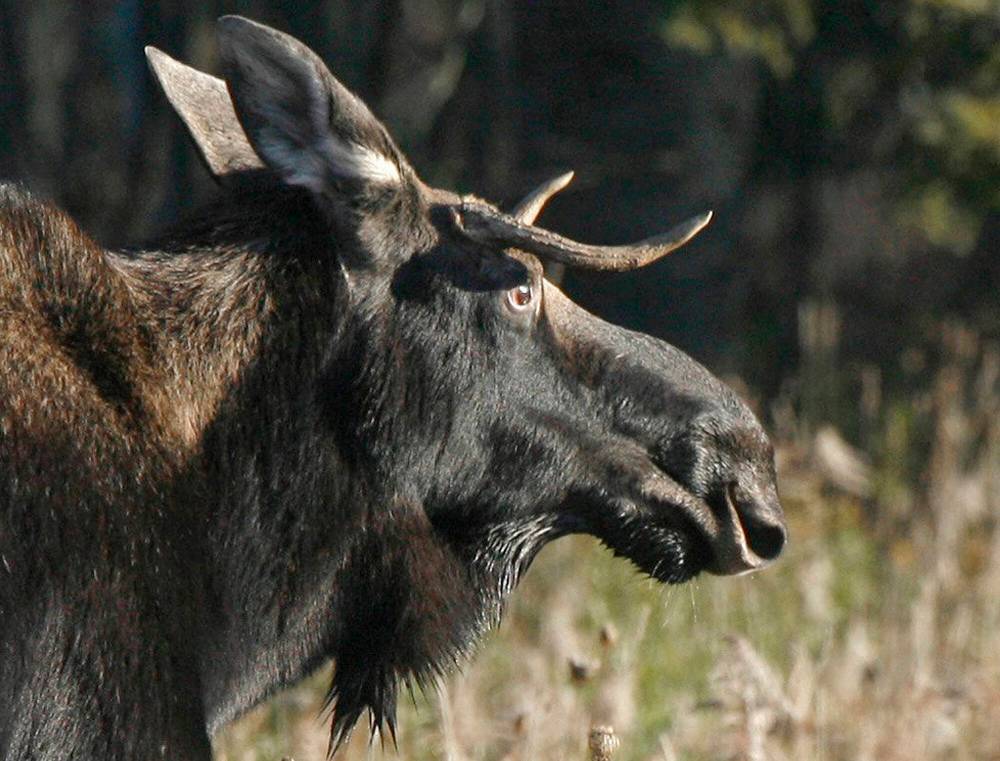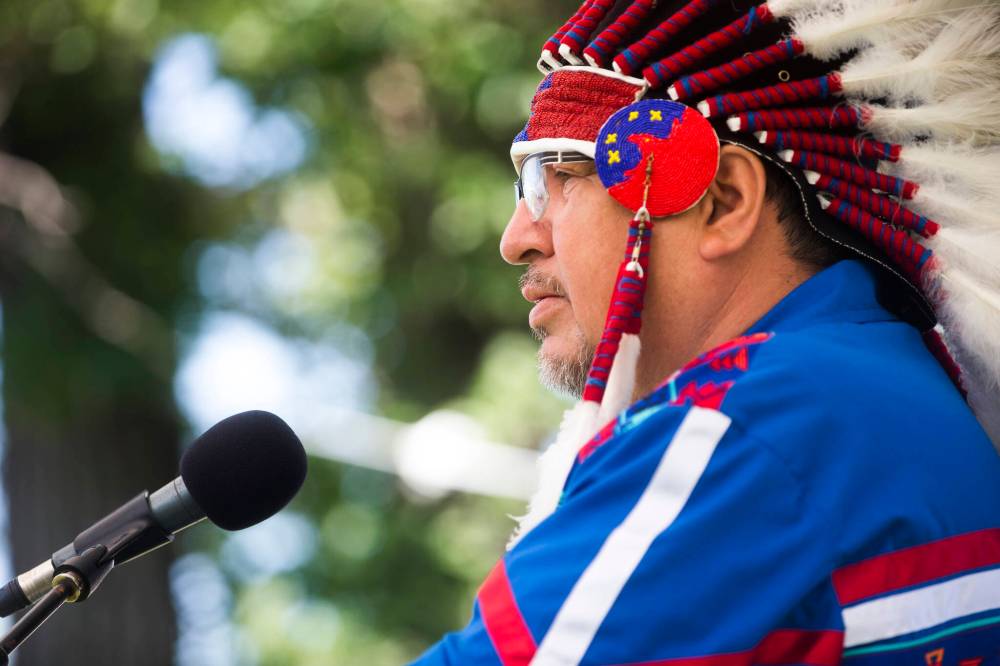Pimicikamak latest Manitoba First Nation to fight for hunting rights
Advertisement
Read this article for free:
or
Already have an account? Log in here »
To continue reading, please subscribe:
Monthly Digital Subscription
$0 for the first 4 weeks*
- Enjoy unlimited reading on winnipegfreepress.com
- Read the E-Edition, our digital replica newspaper
- Access News Break, our award-winning app
- Play interactive puzzles
*No charge for 4 weeks then price increases to the regular rate of $19.00 plus GST every four weeks. Offer available to new and qualified returning subscribers only. Cancel any time.
Monthly Digital Subscription
$4.75/week*
- Enjoy unlimited reading on winnipegfreepress.com
- Read the E-Edition, our digital replica newspaper
- Access News Break, our award-winning app
- Play interactive puzzles
*Billed as $19 plus GST every four weeks. Cancel any time.
To continue reading, please subscribe:
Add Free Press access to your Brandon Sun subscription for only an additional
$1 for the first 4 weeks*
*Your next subscription payment will increase by $1.00 and you will be charged $16.99 plus GST for four weeks. After four weeks, your payment will increase to $23.99 plus GST every four weeks.
Read unlimited articles for free today:
or
Already have an account? Log in here »
A northern Indigenous community is calling on moose hunters to return their licences to the province — the latest move by a Manitoba First Nation to protect its hunting rights.
Pimicikamak Cree Nation Chief David Monias cited food needs and moose population preservation for the move.
“It’s all about survival for us and food security,” Monias said.

Pimicikamak Cree Nation doesn’t consent to moose hunting licences being used within the Cross Lake Resource Area and Cross Lake Registered Trapline Section. (Toby Talbot / The Associated Press files)
Traditional hunters from the First Nation, located about 520 kilometres north of Winnipeg, have noticed fewer moose this year following wildfires this summer that burned 168 hectares of its land, Monias said.
Pimicikamak, also known as Cross Lake, placed a full-page notice in the Free Press on Saturday. It emphasizes that Pimicikamak doesn’t consent or give permission for moose hunting licences to be used within the Cross Lake Resource Area and Cross Lake Registered Trapline Section.
Pimicikamak has communicated its view to the provincial government, the notice reads.
It points to the Northern Flood Agreement, which was signed by five northern First Nations, Manitoba Hydro and the federal and provincial governments in 1977 during the creation of the Lake Winnipeg regulation and Churchill River Diversion projects.
The agreement was made, in part, because a dam negatively impacts hunting the region, Monias said. The agreement stipulates that members of Pimicikamak have “first priority” to hunt within their resource area and that Manitoba will prohibit non-members from hunting in the territory, which intersects with four provincial hunting areas (3, 3A, 9A and 10).
“They promised to protect our way of life and ensure food security for our people,” Monias said, alleging the province has “violated that.”
It’s been a “long time” since the province surveyed the local moose population, Monias continued.
Most non-residents hunt moose in the area for sport, Monias said.
The Manitoba government announced it would make 350 moose hunting licences available this year, a jump from 250 in 2024. Hunting season began Sept. 15.
The province didn’t respond to questions Sunday.
Pimicikamak produced similar notices last year — in the Free Press, the Opasquia Times and the Thompson Citizen — saying it wouldn’t recognize hunting tags issued for game hunting areas 9A and 10.
Last year, the First Nation asked Manitoba’s Court of King’s Bench to cancel all licences that permitted non-Indigenous moose hunting on its territory.
Pimicikamak is awaiting a decision from Justice Brian Bowman, said Byron Williams, the lawyer who represented Pimicikamak.
The province has failed to prohibit moose hunting in areas 3 and 3A, Williams asserted, adding Pimicikamak members are now hunting in Saskatchewan.

Pimicikamak Cree Nation Chief David Monias said his community is trying to protect food security and traditional ways of life this moose-hunting season. (Mikaela Mackenzie / Free Press files)
Pimicikamak is the latest Manitoba First Nation to fight for its hunting rights this year.
Last Wednesday, Misipawistik Cree Nation filed a lawsuit against the Manitoba government, alleging licensed moose hunting on its traditional territory infringes on its rights. It’s asked the court to cancel licences issued for three game hunting areas in its region.
“We’re seeing an absolute failure by Manitoba to live up to its solemn treaty promises,” Williams said.
“Manitoba has benefited greatly from hydroelectric development… but it hasn’t honoured the promises that it made in the Northern Flood Agreement as to try and redress the damages.”
On Sept. 15, Bloodvein First Nation and the province moved to restrict access to non-First Nations hunters in certain areas on the east side of Lake Winnipeg, near the community.
At least one new sign at Sagkeeng First Nation warns people not to enter. Hunting, fishing and trespassing on its lands and waters are prohibited, a sign reads at the intersection of provincial roads 313 and 315.
The Manitoba Wildlife Federation — which represents sport hunters and fishers — has previously expressed concern about restricted access to provincial Crown land.
“We strongly believe we need shared management,” Chris Heald, the federation’s senior policy advisor, said earlier this month. “We recognize the Indigenous have first right to the resource, but it’s not exclusive.”
Natural Resources Minister Ian Bushie announced in May the province would work with Pimicikamak on a new wildlife advisory and planning board. It established zones specifically for Indigenous hunters this year — 15 per cent of 9A and 12 per cent of 10.
gabrielle.piche@winnipegfreepress.com

Gabrielle Piché reports on business for the Free Press. She interned at the Free Press and worked for its sister outlet, Canstar Community News, before entering the business beat in 2021. Read more about Gabrielle.
Every piece of reporting Gabrielle produces is reviewed by an editing team before it is posted online or published in print — part of the Free Press‘s tradition, since 1872, of producing reliable independent journalism. Read more about Free Press’s history and mandate, and learn how our newsroom operates.
Our newsroom depends on a growing audience of readers to power our journalism. If you are not a paid reader, please consider becoming a subscriber.
Our newsroom depends on its audience of readers to power our journalism. Thank you for your support.
History
Updated on Sunday, September 21, 2025 12:29 PM CDT: Adds details







